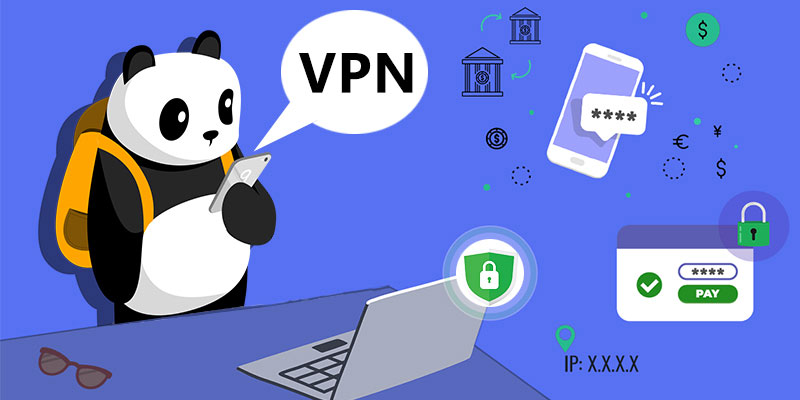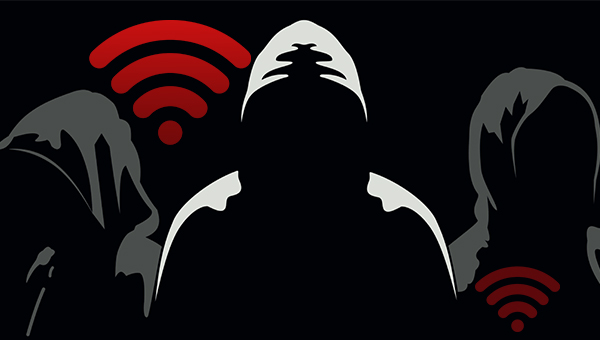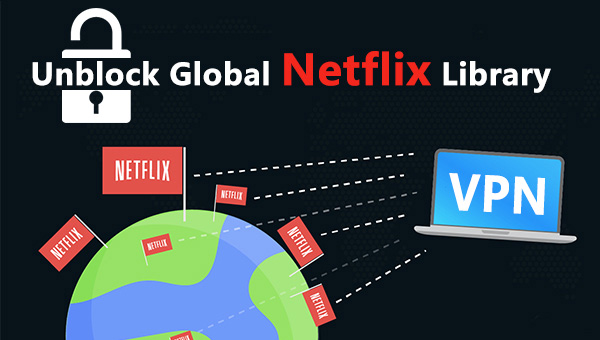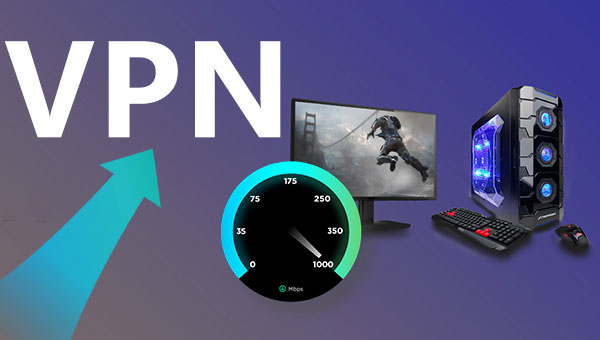What Is VPN Used for? 13 Purposes of Using a VPN Revealed

Short for Virtual Private Network, VPN is an Internet service that creates an encrypted and secure online connection. Internet users who use VPNs can have complete control of their online privacy and security.
Nowadays, increasing numbers of people are using VPNs. Don’t know what is VPN used for? Keep reading this article, where we reveal the 13 purposes of VPN.
1. Hide your IP address to remain anonymous.
An IP address serves as a mailbox, through which people easily have access to your location. However, with a VPN, you are not traceable anymore. How does a VPN work to hide your IP address?
A VPN . When connecting to the network with a VPN, your original IP address will be switched to the IP address offered by the VPN service provider. This way, people will no longer know where you are. And you can successfully remain anonymous online.
2. Avoid online monitoring and tracking.
Using a VPN can your location and seeing everything you do online. It is because all your online activities are routed through the VPN server, not the ISP. Beyond that, VPN also protects you from the government, websites you visit, apps and services you use, and even hackers hiding in the dark.
3. Protect your data privacy online.
With a VPN connection, all the data you send and receive is encrypted. Your ISP such as Comcast, Spectrum, Verizon, or other companies that you pay for the home network has no longer access to see when, where, and how you browse.
Most apps and services you use are recording your data, including your account information and browsing history. A VPN can limit their collection of your private data.
Government monitoring isn’t a secret nowadays. Network surveillance is widespread and almost all Internet traffic can be monitored. What government surveillance does is recognize threats, prevent and investigate criminal activities, and maintain social control.
4. Secure public Wi-Fi connection.
Free Wi-Fi at airports, coffee shops, and teahouses is convenient but comes at the expense of security. Hackers may hide in the shadows to peek at your private information. Besides hackers, many chain stores and companies are very interested in learning about your browsing habits.

Nowadays, data is valuable, while your privacy is less important. How to protect your online privacy? When you are connecting to , don’t expose your personal information. Using a VPN protects your data while you are on a Wi-Fi connection, hiding your browsing history, banking information, account passwords, and more.
5. Ensure remote work security.
For large companies, using a site-to-site VPN can create a private and encrypted network where branches in different places can connect. Hackers outside cannot access this network. This way, the company’s confidential data is safe.
Employees on a business trip can’t use the company’s private line. To ensure the security of data transmission, VPN is indispensable. Furthermore, since 2020, many companies have changed the way they work due to the COVID-19 pandemic. More and more enterprises support working from home, and VPN is the most basic security for employees to work remotely.
6. Unblock social media.
Popular social media like Facebook, Twitter, Instagram, Quora, etc., are not accessible in many countries with strict like China, North Korea, Iran, Syria, etc. A VPN enables Internet users to unblock these social media services.
See Also:
7. Watch YouTube/Netflix without ISP throttling.
Streaming sites like YouTube and Netflix are the top users of internet bandwidth. To cut back the usage of bandwidth, many ISPs will throttle users’ connection speed. That’s why you suffer annoying video outages, buffering, or other impediments. By using a VPN, you can get around and your ISP can’t know what you are doing. This way, it can no longer slow down your connection speed.

8. Enjoy streaming services in other countries.
VPN allows you to unblock geographical or copyright restrictions over the world. All you need to do is to change a VPN server. Switching servers reroutes your IP address, so it appears that you are located in a different country. In this way, you can , Hulu, and many more to enjoy their content free.
Good VPNs usually have servers in multiple locations around the world for users to choose from. If you want to watch BBC, just choose the server in the UK.
9. Shop for good prices.
On shopping sites, you can use a VPN to change your . The same item has a different price in different countries/regions. Just switch your IP address to find the cheapest price.
The subscription price to streaming services like Netflix also varies in different countries. with a VPN, you can change your location to get a lower price for the subscription.
10. Save money on flight and hotel booking.
If you like to travel overseas to see the customs of different places, VPN is a great way to save money. By switching IP addresses via VPN, you can get great airfares. When you travel abroad, you have to book hotels. With a VPN, you can find the best hotel rates by simply changing servers.
For those who travel overseas frequently, you need to book hotels and buy airline tickets as well. With a VPN, you can switch IP addresses with a simple fingertip before each trip, and you’ll get good prices.
11. Get a fast gaming experience.
Have you encountered these awkward situations when playing games? The unstable internet speed ruins your gaming experience. Or, the latency spikes get you killed in intense multiplayer matches. With a VPN, you’ll have a way to go.
A VPN helps stabilize Ping, reduce latency, prevent you from attacks, and greatly enhance your gaming experience. Also, by switching servers, you can connect to different IP addresses, unlock the worldwide games you want to play, and even get a sneak preview of the latest games, for example, the new !

12. Download torrents and share files.
Most torrent sites will warn you to always use a VPN before downloading. Even the most reputable torrent sites can be risky. It is easy for cybercriminals to steal your IP address, monitor your Internet connection, and even upload malware-infected torrents.
13. Block ads and potential viruses.
Ads are not only annoying but also risky. The risk is that you may accidentally enter a phishing site with a wrong click of the advertisement.
Criminals may spoof the address and content of a real website to create a fake site, or insert dangerous code into a real website. In this way, they can steal personal information such as your bank or credit card account passwords.
Reliable VPNs usually have built-in ad blockers and anti-virus plug-ins. When connecting to a network through a VPN, you will no longer endure endless pop-up ads. More importantly, there will be no more potential virus threats. Your Internet environment will be much safer.
Conclusion
used for? VPN acts as a shield for your online privacy. Therefore, no one can snoop on your browser history. VPN can also unblock the geographical restrictions in different countries, and then you can enjoy global streaming services.
More importantly, VPN can be your money saver. Switching VPN servers allows you to . This way, you can find a cheaper price for hotel or flight booking.

